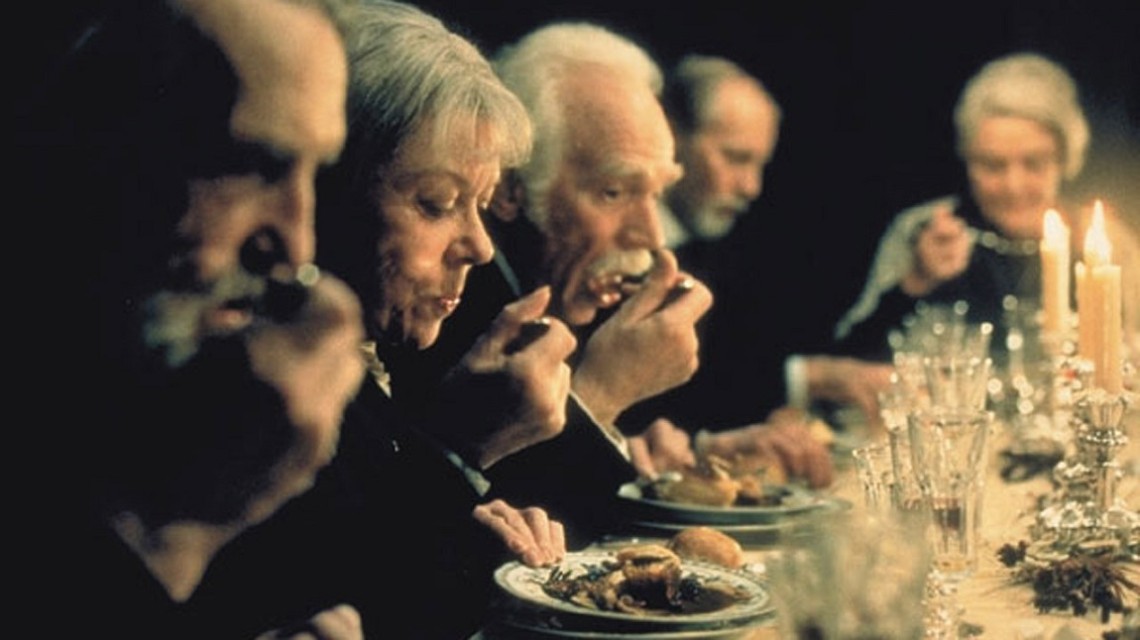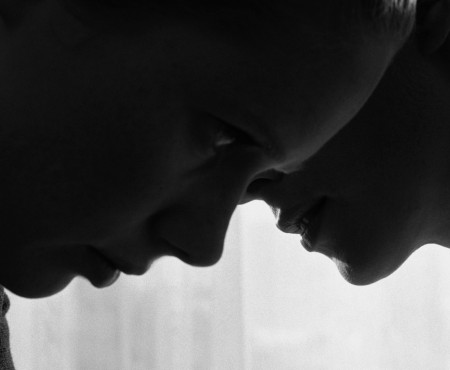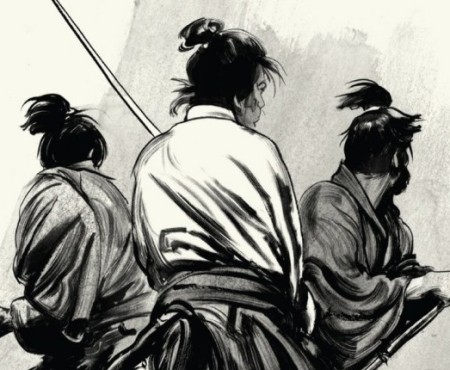The first time I watched Babette’s Feast, I must admit I misconstrued its themes. Here was a story that coalesced two opposing ways of living life and I was quick to see one as better than the other, when the film actually builds to something else entirely, a different way altogether of understanding life. One way seeks earthly achievements, another spiritual achievements, but neither amount to much by the end of the film.
The story follows the lives of two sisters Filippa (Bodil Kjer) and Martine (Birgitte Federspeil) and their attempts to continue the legacy of their father, the pastor of a small Denmark community that provided great leadership to the town. However, the town waines from what it once was, as much as the two sisters strive to keep the community together. When a strange woman named Babette (Stephane Audran) seeks refuge with the sisters, she begins to offer a new outlook on life.
Before these events occur, the two sisters are courted and given a chance to gain worldly status and success. Achille Papin (Jean-Philippe Lafont) is convinced that one of the sisters could become a renowned singer under his care and Lorens Lowenhielm (Jarl Kulle) has a promising career ahead of him as a military officer. Both sisters get a chance at a life that would likely grant them great worldly fulfilment, but instead choose a simple life of singleness and servitude with their father. The film then transitions to years past and we see the sisters still living in the small community with only each other.
And here is where I tripped up on my first viewing of the film. As the sisters continue to serve the community, I’m quick to judge this as the right decision. They’re putting others before themselves and serving those in need. A much higher calling than worldly success, surely? But for all their strivings to serve others and lead in their father’s footsteps, the community grows bleak, dying and desperate. Their striving to save the community is fruitless.
The point the film comes to is that ultimately both ways are empty. Both involve trying to strive and attain happiness through one’s own actions. The sisters seem to believe that their servitude will earn them happiness and it ultimately cannot. Likewise, when Lorens Lowenhielm returns to the town years later for the feast, now a renowned general, we find him not proud and fulfilled by his life work, but lamenting how empty his worldly striving is.
It is to this place that the titular feast is brought. Through a miraculous turn, Babette’s fortune changes and she comes into a large sum of money. Instead of using this money to secure a better life, she plans a feast for the entire town. She order the best foods, exotic delicacies, rich wines and mysterious spices. For the simple folks of the town, it seems a scandalous prospect, but their curiosity draws them to Babette’s Feast.
In some ways, Babette’s Feast is at the intersection of the two ways through life. Babette used to be a great chef, but now in exile, she uses her professional gifts as an expression of servitude to reach out to the community. However, it is different because her feast is ultimately not about her and what she can attain, but what she can give away. The servitude of the sister’s expect something in return, Babette remains hidden in the kitchen, not seeking recognition or thanks for her efforts.
And the feast is met with reservations. It’s comical how such a rich, vibrant feast is looked on with suspicion. The people suspect that the food and drink will lead them into some form of licentiousness, that the outside Babette is some sort of witch with food. However, as the feast unfolds, as it slowly weights upon them, something about the feast becomes a transformative work in the hearts of the community.
Sharing the richness of the feast begins to heal the broken relationships between the townsfolk. People who were enemies for decades suddenly fall into tears and laughter. Those who were quarreling minutes before sing together in joy. While Babette’s feast is certainly wondrous, it is still just food and drink. It is the coming together and receiving of something unearned and undeserved communally that transforms and strengthens the community in a way that decades of the sister’s striving could never attain.
Brought to this feast are people who have sought happiness through their own efforts but are left ultimately frustrated and empty. People who have spent years hating each other. People who are suspicious of such an exotic feast. Babette calls them to a table furnished with riches they cannot begin to fathom for a meal they could not ever hope to earn. It’s this act that transforms lives and brings a sense of happiness beyond anyone’s personal efforts.




















